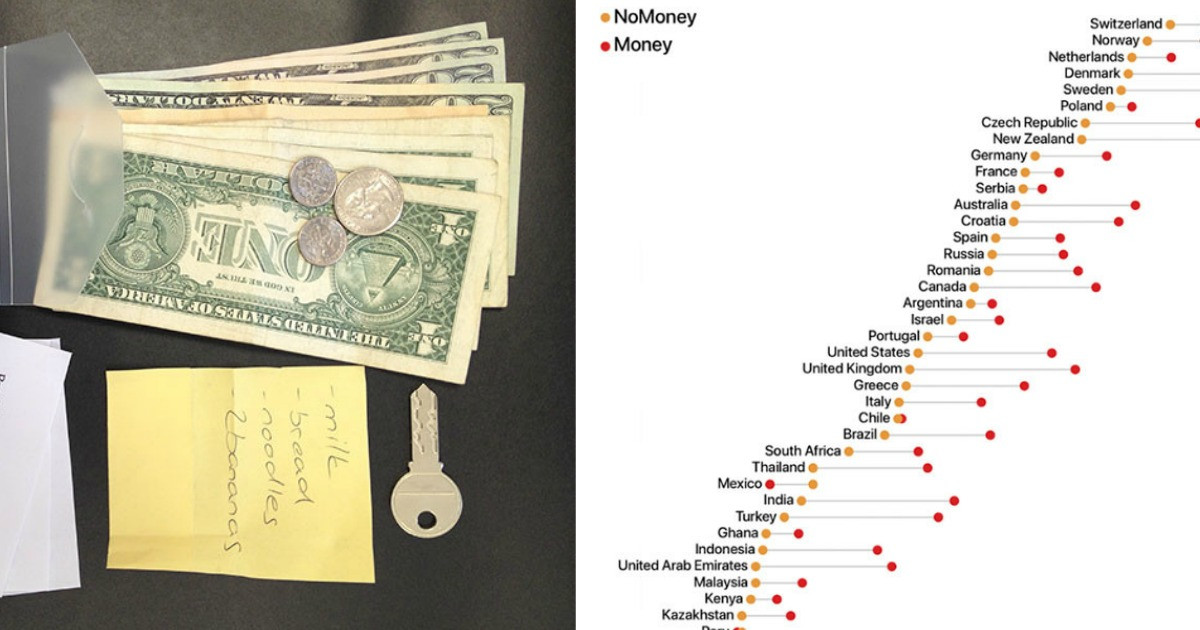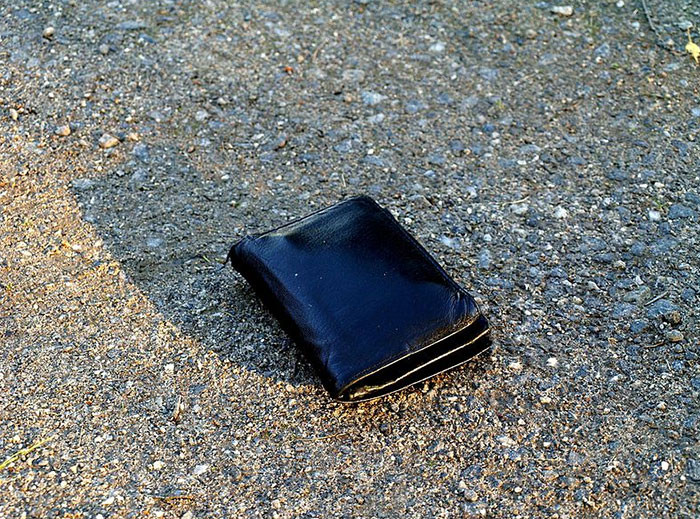
This Experiment Aimed To Test How Many People Across Different Countries Would Return A Lost Wallet
Would you return a lost wallet?

For many of us, losing our wallet would be the worst thing ever. You would have to rely on the kindness of strangers to return it--and, as we're all aware, sometimes strangers are not that kind. Whether whoever finds it takes the money and returns the empty wallet, or doesn't bother returning it at all, you are completely at the mercy of the kindness of strangers.
The Science journal did an experiment based on this premise. They aimed to test whether or not people would be more inclined to return a lost wallet if it had money in it. The experiment was repeated all across the world to see if the results were different.
The idea behind the experiment was simple: people travelled to over 300 cities across 40 countries where they "lost" 17,000 wallets. They aimed to see how people in different countries (and cultures) reacted to a lost wallet.
 Bored Panda
Bored Panda
There were two kinds of wallets that were "lost." The first kind had a key, but no money. The other had varying amounts of money and a key. The wallets also contained grocery lists (written in their native language) and business cards with a name and email address on them.
The experiment aimed to target people's value systems.
 Christian Lukas Zünd, Science (via Bored Panda)
Christian Lukas Zünd, Science (via Bored Panda)
The graph below shows the results.
The yellow dot represents the percentage of wallets without money that were returned, while the red dot shows the amount of wallets with money that were returned.
 Cohn, et al, Science (via Bored Panda)
Cohn, et al, Science (via Bored Panda)If the countries are averaged together, approximately 40% of people bothered to contact the owner whose wallet had no money. Only a bare majority (51%) did when the wallet had money inside. As for the wallets with a large amount of money inside, approximately 72% of people contacted the owner.
Once again, Nordic countries reigned supreme, with the highest return statistics (regardless of whether the wallet contained money).
 Pexels
Pexels
In a press conference discussing the paper, author Christian Lukas Zünd, from the University of Zurich, said:
"Why are people more likely to return the wallet when it contains more rather than less money? It’s natural to think it’s simply because people are altruistic and because they care about the owner of the wallet. Our results suggest it’s a combination of altruism and what we call theft aversion, so aversion to feeling like a thief.”
 Pexels
Pexels
Rachel







